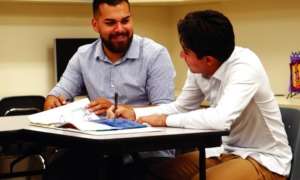
The Wallace Foundation examines some of the best practices used by the nation’s top afterschool programs, in a recently released report.
The report, “Better Together: Building Local Systems to Improve Afterschool,” compiles information and data from numerous organizations, including the American Youth Policy Forum, the Collaborative for Building After-School Systems, the Forum for Youth Investment and the National League of Cities’ Institute of Youth, Education & Families.
Emphasising afterschool techniques such as strategic data use and continuous program improvement models, the report notes many examples of cities that have used innovative practices to forge better services for youth. New York City, for example, used demographic information to identify the neediest communities so they could receive a larger share of the city’s afterschool funding. In Boise, Idaho, officials used poverty data and juvenile crime statistics to pinpoint needy neighborhoods, and then sent vans with recreational equipment and snacks to the areas on weekends.
The report encourages the promotion of “afterschool systems,” which are community-wide partnerships involving local stakeholders, such as youth departments, afterschool programming and both private and governmental funders, such as schools and colleges.
“We have pretty compelling evidence now that high-quality programs can influence a range of important academic and social outcomes for young people,” the report quotes Nicole Yohalem, senior director of special projects at the Forum for Youth Investment. “We also have evidence that low-quality programs do not, and that’s really critical.”
Much of the report’s findings are collected from a conference in Baltimore earlier this year. Some 400 representatives from more than 50 cities discussed and presented information on how to improve afterschool programming.
“This report captures lessons and some very creative efforts on the part of cities and youth development experts to translate these national lessons into local successes,” said Nancy Devine, director of learning and enrichment at the Wallace Foundation. “We have a decade’s worth of lessons on how to make these systems work, what elements have to be in place, and how significant the benefits can be for our kids.”
Photo credit: Visit Greenwich / Flikr (license: http://creativecommons.org/licenses/by/2.0/)






























